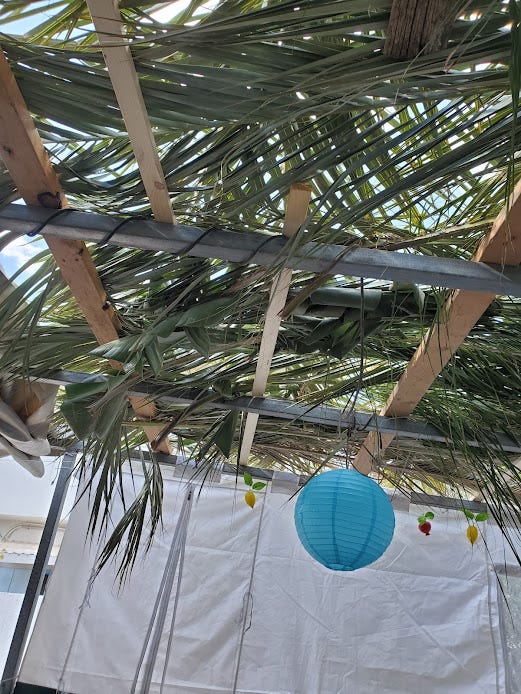Gratitude and Sukkot: Understanding Their Deep Connection
Written on
Chapter 1: The Essence of Sukkot
In this piece, we delve into the profound relationship between thankfulness and the festival of Sukkot, also referred to as the Feast of Tabernacles or Booths. The commandments surrounding Sukkot can be found in Vayikra (Leviticus) 23:33–43. Celebrated five days after the solemn Yom Kippur, Sukkot is a vibrant and joyous occasion that spans seven days. During this time, the Torah instructs us to reside in temporary shelters known as sukkot or booths.
The divine commandment states, “...you must live in sukkot; everyone included in Israel must live in a sukkah. This is so that future generations will know that I had the Israelites live in sukkot when I brought them out of Egypt; I am G-d your Lord.” (Vayikra 23:42–43). This mitzvah serves as a powerful reminder of the Israelites’ experiences in the wilderness following their escape from Egyptian bondage, living in temporary shelters while relying on HaShem for protection and sustenance.
Sukkot embodies a season of gratitude, celebrating not just the agricultural harvest but also the myriad blessings bestowed upon us by HaShem throughout our history. The bond between thankfulness and Sukkot reveals itself in various aspects:

Section 1.1: Expressions of Gratitude
- Thankfulness for the Harvest: Sukkot marks the end of the agricultural season when the harvest is gathered, allowing us to express appreciation for the abundance provided by HaShem. Residing in simple, temporary sukkot serves as a reminder of the fleeting nature of material possessions and our reliance on divine sustenance.
- Reflection on the Exodus: The temporary shelters evoke memories of the Israelites’ journey through the wilderness, a time filled with miracles and divine provisions, such as the manna from heaven and water from the rock. Sukkot invites us to reflect on these experiences and give thanks for HaShem’s unwavering presence in our lives.
Subsection 1.1.1: Community and Connection
- Appreciation for Shelter and Community: This holiday encourages us to recognize the basic necessities of life, including shelter. Living in sukkot highlights the fragility of our physical homes, prompting gratitude for the roofs over our heads. Sukkot is also a celebration of unity, where families and friends gather to share meals and festivities in the sukkah, reminding us to value the support of our loved ones.
- Connection to Nature: Sukkot uniquely ties us to the natural world; the roof of the sukkah must consist of natural materials like bamboo or palm branches. Additionally, the sukkah is decorated with fruits and vegetables, symbolizing the harvest and the beauty of nature. Spending time in the sukkah immerses us in the sights, sounds, and scents of the outdoors, fostering appreciation for the wonders of creation and encouraging responsible stewardship of the environment.
Chapter 2: The Spiritual Significance of Sukkot
Sukkot is a powerful reminder of how gratitude intertwines with our relationship with HaShem, our history, the natural world, and our communities. By dwelling in sukkot and participating in the holiday’s rituals, we nurture a spirit of gratitude, recognizing the blessings in our lives.
The first video, "Rejoicing with Gratitude" (Sukkot/Tabernacles) - Daily Manna - 10/03/2023, emphasizes the importance of gratitude during this festive season and how it aligns with the teachings of Sukkot.
The second video, "This World Is Temporary, But There's Hope | Sukkot 5784 | Rabbi Jason Sobel," explores the fleeting nature of our existence and the hope that Sukkot brings, reminding us to embrace gratitude amid life’s transience.
In summary, Sukkot teaches us to appreciate the harvest, reflect on our journeys, value shelter and community, and embrace the beauty of nature. Through our expressions of gratitude, we deepen our connection with HaShem and cultivate a sense of joy and fulfillment.